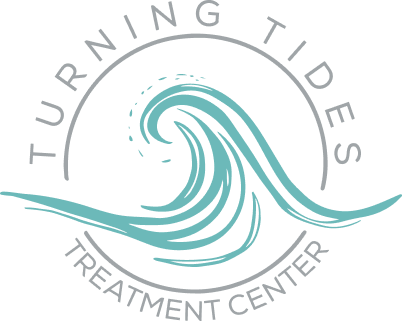Unresolved Trauma and Addiction: How EMDR Can Help
Unresolved trauma and addiction intertwine in a silent dance of distress and dependence, creating a cycle that can be challenging to break. The journey from experiencing traumatic events to seeking solace in addictive behaviors is one marked by pain, avoidance, and a deep-seated need for relief. This article delves into the intricate relationship between unresolved trauma and addiction, shedding light on the psychological underpinnings and providing a guide for healing and recovery.
Understanding Trauma
According to the American Psychological Association, “Trauma is an emotional response to a terrible event like an accident, rape, or natural disaster.” Trauma, in its many forms, acts as a profound disruptor of an individual’s sense of safety and well-being. It is not just the event itself but the person’s subjective experience of it that defines trauma. This can range from one-time occurrences to ongoing stressors, each leaving an indelible mark on the psyche.
Trauma is a multifaceted phenomenon, encompassing a wide range of experiences that can deeply affect individuals’ mental, emotional, and physical well-being. Understanding the different types of trauma is crucial for comprehending the complex ways in which individuals react to and cope with traumatic events. Here, we explore several primary categories of trauma, each with its distinct characteristics and potential pathways to substance use disorders and addiction as a coping mechanism.
- Physical Trauma: This type of trauma results from bodily injury or harm, whether through accidents, natural disasters, violence, or other physical threats. The impact of physical trauma goes beyond the immediate physical injuries, often leading to long-term psychological effects such as post-traumatic stress disorder (PTSD), anxiety, and depression. Individuals may turn to substances or addictive behaviors as a means to manage pain, fear, or the stress associated with their physical recovery.
- Emotional and Psychological Trauma: Emotional trauma arises from experiences that threaten one’s sense of security or self-worth. This can include experiences of bullying, emotional abuse, neglect, or witnessing violence. Psychological trauma, similarly, refers to damage to the psyche after living through an extremely frightening or distressing event. Both forms can lead to profound feelings of sadness, worthlessness, and detachment, driving individuals toward addiction as they seek to escape these intense emotions.
- Sexual Trauma: Sexual abuse, assault, and harassment fall under this category. The violation of one’s body and autonomy can leave lasting scars, affecting victims’ relationships with their own bodies and with others. The shame, guilt, and trauma resulting from such experiences often contribute to substance use, as victims attempt to numb their pain or regain a sense of control.
- Developmental Trauma: This type arises from adverse experiences during critical periods of development in childhood or adolescence, such as persistent neglect, abuse, or parental substance abuse. Developmental trauma can disrupt normal emotional, cognitive, and neurological development, leading to difficulties in learning, forming relationships, and managing emotions. Individuals with a history of developmental trauma may turn to addictive behaviors as a form of self-medication or to fill emotional voids.
- Complex Trauma: Complex trauma results from exposure to multiple traumatic events, often of an invasive, interpersonal nature. This type of trauma is characterized by the varied and cumulative effects of exposure to prolonged abuse, war, community violence, or captivity. Individuals experiencing complex trauma may face challenges in trusting others, and regulating emotions, and may struggle with a sense of identity. Addiction serves as a maladaptive strategy to cope with the overwhelming stress and emotional pain associated with complex trauma.
- Secondary or Vicarious Trauma: This occurs when individuals are exposed to the traumatic experiences of others, often in a caregiving or professional context, such as therapists, healthcare workers, or first responders. Hearing about or witnessing the suffering of others can lead to similar symptoms as those experienced by direct trauma survivors, including heightened anxiety, hypervigilance, and emotional numbing. Without proper self-care and support, those experiencing vicarious trauma may also resort to substance use or addictive behaviors as coping mechanisms.
The Impact of Trauma
The impact of trauma extends far beyond the immediate aftermath of the traumatic event, infiltrating every aspect of an individual’s life. Trauma can fundamentally alter a person’s psychological, emotional, and physiological state, leading to a myriad of long-term effects. Psychologically, trauma survivors may experience persistent fear, anxiety, depression, and memories of the event that intrude unexpectedly into their daily lives. Emotionally, individuals may feel overwhelming sadness, anger, guilt, or shame, often fluctuating unpredictably and intensely. Physiologically, trauma can heighten the body’s stress response, making survivors more susceptible to a range of health issues, from hypertension to immune system dysfunction.
Trauma can also severely impact an individual’s sense of self and their ability to form and maintain healthy relationships. Trust, intimacy, and safety—fundamental aspects of human connection—can become fraught with complexity and fear. Social withdrawal is common, as the world may no longer feel like a safe place. This profound sense of isolation and misunderstanding can drive individuals toward addictive behaviors as a misguided form of self-protection and an attempt to connect or numb the pain.
The Path to Addiction
Coping Mechanisms
In the face of trauma, individuals develop coping mechanisms as strategies to deal with their overwhelming emotions and memories. While some may find healthy ways to process and heal, such as through therapy, exercise, or creative expression, others may adopt maladaptive coping mechanisms. Substance abuse, overeating, gambling, and engaging in risky behaviors can all serve as ways to escape or numb the intense feelings associated with trauma. These behaviors provide temporary relief or a fleeting sense of control over one’s emotional state, but they ultimately compound the individual’s problems by adding layers of addiction or behavioral health issues.
The Role of Avoidance
Avoidance is a natural response to trauma, where individuals consciously or unconsciously steer clear of thoughts, feelings, situations, or people that remind them of the traumatic event. While avoidance might provide short-term relief from pain and anxiety, it prevents the processing of trauma, maintaining its power over the individual’s life. This coping strategy can become a significant barrier to healing, as it reinforces fear and anxiety, making the world seem increasingly dangerous and unpredictable. The use of substances or engagement in addictive behaviors as a form of avoidance not only delays healing but can lead to the development of an addiction, further complicating the individual’s path to recovery.

Psychological Theories
The Self-Medication Theory
The Self-Medication Theory posits that individuals with trauma or mental health issues use substances or addictive behaviors as a way to manage their symptoms. For example, someone with untreated PTSD might use alcohol to self-medicate the intrusive thoughts and insomnia that plague them. This theory suggests that the choice of substance or behavior is not random but is related to the specific effects it has on the individual’s thoughts, feelings, and sensations. While self-medication can offer temporary symptom relief, it does not address the root cause of the distress and often leads to a cycle of dependence and addiction, creating additional layers of complexity in the individual’s struggle with trauma.
Attachment Theory
Attachment Theory explores how early relationships with caregivers shape our expectations and behaviors in relationships throughout life. According to this theory, individuals who experience trauma in early childhood, especially within the context of their primary caregiving relationships, may develop insecure or disorganized attachment styles. These attachment styles can influence how a person deals with stress, regulates emotions, and relates to others. For those with insecure attachments, substances or addictive behaviors might temporarily fill the void of emotional connection or offer a semblance of control over their internal emotional turmoil. This theory underscores the importance of addressing underlying attachment issues in the treatment of addiction and trauma, as healing these foundational relationships can be key to breaking the cycle of addiction and fostering healthier coping mechanisms.
Addressing the Issue
Therapeutic Interventions
Addressing both unresolved trauma and addiction requires a multifaceted therapeutic approach. Trauma-informed care recognizes the pervasive impact of trauma and seeks to create a treatment environment that is sensitive to the needs of those who have experienced trauma. Cognitive-behavioral therapy, eye movement desensitization and reprocessing (EMDR), and mindfulness-based practices are among the interventions that have shown effectiveness in treating both trauma and addiction by helping individuals process their experiences and develop healthier coping mechanisms.
Community Support
The journey of recovery is not one that should be undertaken alone. Community support, whether through support groups, family, or social networks, plays an indispensable role in the healing process. These networks provide a sense of belonging, understanding, and encouragement, offering individuals the resilience and resources needed to navigate the path to recovery.
FAQs
Unresolved trauma refers to traumatic experiences that have not been adequately processed or healed, continuing to affect an individual's emotional and psychological well-being.
Unresolved trauma can lead to addiction as individuals seek ways to cope with their pain, often turning to substances or behaviors that offer temporary relief but ultimately exacerbate their problems.
While addiction can be managed through various interventions, addressing the underlying trauma through substance abuse treatment and trauma therapy is crucial for long-term recovery and preventing relapse.
Effective interventions include trauma-informed care, cognitive-behavioral therapy, eye movement desensitization and reprocessing (EMDR), and mindfulness-based therapies.
Yes, with appropriate therapy and support, individuals can heal from unresolved trauma and overcome addiction, leading to improved well-being and a fulfilling life.
Overcome Trauma and Addiction
The relationship between unresolved trauma and addiction is a testament to the human need for relief from pain, be it physical, emotional, or psychological. Understanding this relationship is crucial for anyone caught in the cycle of trauma and addiction, as well as for those who support them. With appropriate intervention and support, recovery is not just a possibility but a pathway to a more fulfilling life, free from the bonds of past trauma and addiction.
If you or a loved one are struggling with addiction, get in touch with Turning Tides Treatment Center. We offer addiction recovery treatment programs that aim to treat the root cause of addiction. Our addiction treatment center is dedicated to providing individuals with a safe, supportive environment to overcome the challenges associated with drug use and drug addiction.
Clinically Reviewed by:

Matthew is a licensed marriage and family therapist and clinical supervisor in Orange County, California. Matthew has an extensive history working with the substance abuse and mental health population and is committed to client care with an ethical approach to treatment. Matthew utilizes a solution-focused, cognitive behavioral approach to therapy. He emphasizes the importance of creating a recovery environment which supports deep and meaningful sober connection, a system of accountability, daily structure and healthy routine, and an aftercare plan which will support continued sobriety post-treatment.
